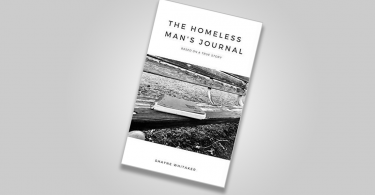Last month, actress and UN Goodwill Ambassador Emma Watson announced she was beginning a feminist book club and urged men and women alike to join. After reaching out to Twitter for the club’s name, it was christened ‘Our Shared Shelf’ – a moniker that encapsulates the group’s intersectional inclusivity.
Emma explained that the aim of the book club was to share in her own finding of “funny, inspiring, sad, thought-provoking and empowering” books and essays about equality. A new book would be read each month, ending with an open discussion on Goodreads in the last week.
As someone who loves finding new reading material, I jumped at the chance to join Emma’s book club and begin my journey of discovering mind-expanding literature.

The book Emma chose to kick the club off with was Gloria Steinem’s memoir My Life on the Road. I’ll admit that before I embarked on my literary expedition with countless like-minded strangers, I hadn’t actually heard of Gloria Steinem. I know, I know – I can almost hear the cries of “call yourself a feminist?” from here.
In her first book in twenty years, American activist Gloria tells the story of her life… on the road. She pulls no punches, and is refreshingly honest. Such is her no-holds-barred approach to relaying the details of her activist journey, she begins by dedicating the memoir to a Dr John Sharpe, of London, who:
“In 1957, a decade before physicians in England could legally perform an abortion for any reason other than the health of the woman, took the considerable risk of referring for an abortion a twenty-two-year-old American on her way to India.”
This introduction into Gloria’s life makes it absolutely, unequivocally clear her stance on women’s rights. To think that she was so aware of how unjust the law was in 1957 – in which much of the world still saw women as second-class citizens – is astounding. The aforementioned Dr Sharpe told Gloria that she must promise him that she will “do what you want to do with your life.” It is clear to see from My Life on the Road that she did just that, and some.
“When humans are ranked instead of linked, everyone loses.”
Beginning with explaining how her father’s life of travelling across the United States has influenced her own, Gloria articulates how her own nomadic existence has seen her visit numerous countries, meet awe-inspiring individuals and witness history in the making, at Martin Luther King’s 1963 March on Washington and the 1977 National Women’s Conference.

Image: Wikimedia Commons/Palosirkka
“Travelling is a way of being fully alive in the present”
Gloria is a storyteller, having indulged in “talking circles” across the world. Her love for words is no more evident than in this book.
In the chapter aptly named ‘Why I Don’t Drive’, Gloria admits that she saw attaining a driving licence as a “symbol of independence”. It is perhaps ironic then, that she is far more well-travelled and cultured without a car, having been forced to navigate the world like the eager-to-learn tourist she is.
At first, I found the book slightly difficult to follow. It does not follow a chronological timeline; it jumps between decades and countries. However, as I continued with the book, I started to enjoy Gloria’s frantic conversational style of telling a long story and then rushing in with a relevant detail from years before. Her writing style is reminiscent of the ‘talking circles’ she often mentions.
A Shared Shelf indeed
It is a great moment when a friend is also reading the same book, watching the same TV show, or loves the same film as you, enabling a deep discussion centred on the mutual interest. ‘Our Shared Shelf’ is this on a massive scale. This week, the book club hit 100,000 members.
Check out my shelves on Goodreads: https://t.co/axal8gEr5O
— Emma Watson (@EmWatson) January 7, 2016
Here are some of my favourite comments from the ‘My Life on the Road’ discussion:
Humans should be engaging with each other in a collaborative way, learning that the commonality of our ideas, life experiences and beliefs is always a spring of richness for the soul and the mind.
When we step outside our doors, we can all feel like there’s so many possibilities for positive change, and that we all have a voice, and can make a difference.
IT SHOULD make us reflect upon what we CAN do regarding social issues, rather than what we oftentimes assume we CAN’T. Listen, reflect, get involved in life, and don’t just stand on the side-lines watching it play out. Or else, as we get older we’ll look back and wonder where we were all that time. Regrets will come too late.
Books that you know will stick with you for a while are hard to come by, but there is no doubt that My Life on the Road is one that will always inspire me to live life to the fullest, and challenge me to equal Gloria’s incredible anecdotes and memories.

February’s book is Alice Walker’s ‘The Color Purple’; you can join ‘Our Shared Shelf’ on Goodreads.com








